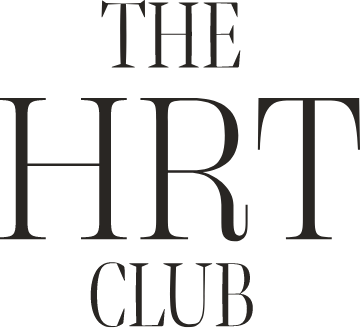When we talk about wellness, we’re usually referring to how we feel day to day: energy, sleep, mood, weight, skin, digestion, libido, brain fog. Guess what controls all of those? Hormones.
Attribution: Image by Freepik
Medically Reviewed by Andrea Caamano, Director of Medical Affairs, The HRT Club
August is National Wellness Month—a time to slow down, check in with your body, and recommit to the habits that help you feel like you. Whether that means saying no to things that drain you, walking after dinner, drinking more water, or finally scheduling that overdue doctor’s appointment—wellness is personal. But if you’re in or approaching menopause, there’s one factor that often gets overlooked in the conversation: hormones.
When we talk about wellness, we’re usually referring to how we feel day to day: energy, sleep, mood, weight, skin, digestion, libido, brain fog. Guess what controls all of those? Hormones.
So, this August, let’s reframe wellness not just as green juices and meditation (though those are great), but as something deeper: hormone balance.
Wellness Feels Different in Perimenopause and Menopause
You’re doing all the “right” things—eating well, exercising, prioritizing sleep—but your body still feels… off. If this sounds familiar, you’re not alone.
During perimenopause and menopause, your estrogen, progesterone, and sometimes testosterone levels start to fluctuate or drop altogether. These shifts can impact nearly every system in your body—because hormones are the body’s chemical messengers. So, it’s no surprise that classic wellness goals like weight management, clear skin, mental focus, and mood stability can start to feel out of reach.
That’s where HRT (hormone replacement therapy) comes in. It’s not about reversing aging—it’s about giving your body back what it’s missing so you can function and feel better.
Why Hormones Belong in Your Wellness Plan
Hormone therapy, when done thoughtfully and with proper guidance, can be a powerful tool for overall wellness. Here’s why:
- Improved Sleep: Estrogen and progesterone both support sleep quality. HRT can reduce night sweats and help you fall asleep and stay asleep.
- Mood & Mental Health: Estrogen affects serotonin and dopamine—the feel-good neurotransmitters. HRT may reduce anxiety, irritability, and low mood tied to hormonal shifts.
- Bone & Heart Health: Estrogen plays a critical role in keeping bones strong and supporting cardiovascular health—two things that tend to decline after menopause.
- Metabolism & Weight: Hormonal balance may support a healthier metabolism and reduce the midsection weight gain common in menopause.
Tips & Tricks for Hormone-Supportive Wellness
Want to work smarter, not harder, when it comes to feeling your best this month? Here are some wellness tips that support hormonal balance—whether you’re on HRT or not:
Eat for blood sugar balance
Include protein, healthy fats, and fiber in most meals. Avoiding sugar spikes helps stabilize hormones and curb crashes.
Prioritize quality sleep
Lack of sleep increases cortisol (your stress hormone), which can throw everything else out of balance. Stick to a bedtime routine and limit screens at night.
Lift weights and move your body
Strength training supports bone density (especially important post-menopause) and helps regulate insulin, which supports hormonal balance.
Stay hydrated
Estrogen loss can lead to dry skin and vaginal dryness. Hydration matters more than ever.
Check your levels and talk to your doctor about HRT
If you suspect hormonal imbalance, don’t guess. A symptom checklist or lab testing can help give you answers. If your symptoms align and your doctor recommends it, HRT could be a game-changer.
The Bottom Line: Wellness Isn’t One-Size-Fits-All
Menopause is not a footnote in your health journey—it’s a turning point. And your hormones are not optional in the conversation.
This National Wellness Month, give yourself permission to ask: What does my body really need right now? If the answer includes hormone support, know that you’re not alone—and you’re not being dramatic. You’re being informed. You’re advocating for your body.
At The HRT Club, we believe your hormones are a part of you—and they deserve the spotlight this month. Talk to your doctor about HRT.
🔎 Find a Prescriber or explore our treatments today.


